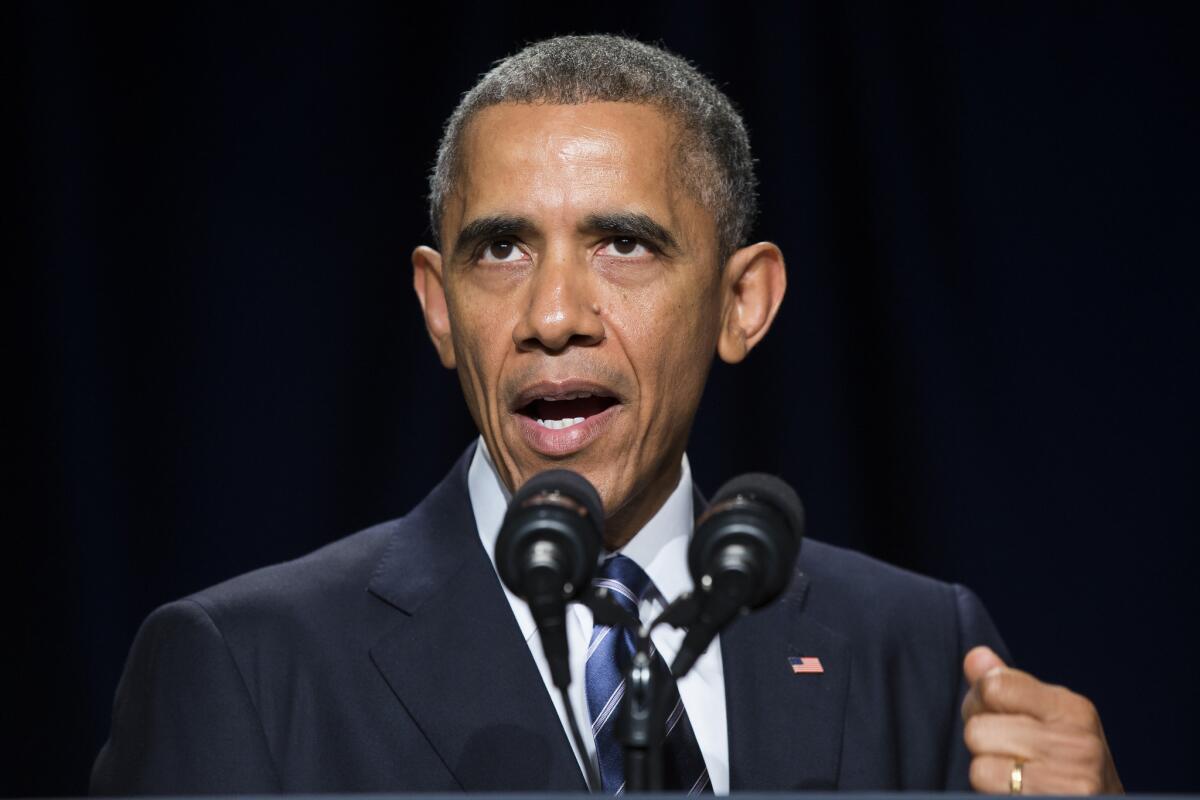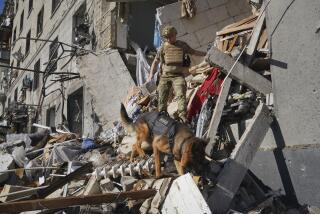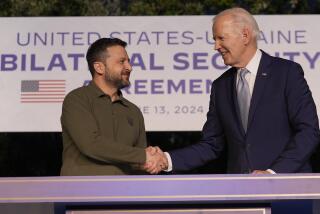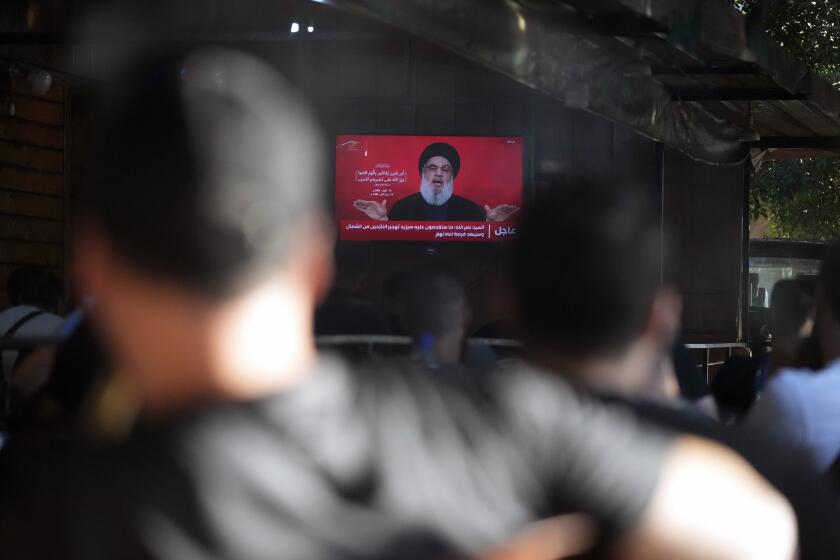Obama security report says crises shouldn’t derail long-term strategy

Facing Republican charges that President Obama has a muddled strategy to deal with global crises, the White House released a foreign policy blueprint Friday that it says shows a readiness to take on adversaries and to rally allies and partners to the fight.
The document, called the National Security Strategy, defends Obama’s approach to the conflict in Ukraine and to fighting Islamic State militants in Syria and Iraq. It also argues that current crises shouldn’t threaten long-term strategies to fight terrorism and climate change and to engage with the world, particularly Asia, from a strong leadership position.
The proposal is heavy on the idea of American leadership in a world of increasingly complex problems. It is Obama’s second and final National Security Strategy, a document required annually by Congress but last updated in 2010 — before the Arab Spring uprisings, the civil war in Syria, the rise of Islamic State and the conflict in Ukraine.
“On all these fronts, America leads from a position of strength,” Obama wrote in an introduction. “But this does not mean we can or should attempt to dictate the trajectory of all unfolding events around the world.
“We must recognize that a smart national security strategy does not rely solely on military power,” he said. “The challenges we face require strategic patience and persistence.”
The plan affirms the White House’s current course in every world region. The U.S. will continue to work to fight immediate threats, it says, while also fighting long-term problems such as disease, cyber threats and extreme poverty. Climate change in particular is an “urgent and growing threat” to national security, the report says.
Some of Obama’s advisors are suggesting that the U.S. should take a more aggressive approach in some hot spots. This week, Ashton Carter, the president’s nominee to lead the Pentagon, told lawmakers he might advise providing weapons to Ukraine as it battles Russia-backed separatists, something Obama has resisted but the White House has said is it reconsidering.
The 29-page document emphasizes partnership with Congress, something Republican lawmakers argue has been lacking. The blueprint dovetails with a White House effort to win congressional authorization for the use of military force in the fight against Islamic State, the militant group that has seized large areas of Syria and Iraq.
For critics, the document does little to shed light on Obama’s plans and guiding principles.
“When you try to do everything at once like the administration has done here, you end up with a bunch of generalities,” said Anthony Cordesman, a senior military analyst at the nonpartisan Center for Strategic and International Studies in Washington. “You have a document that has no real guidance, no real priorities and no real substance.”
The strategy fails to address shortcomings in U.S. foreign policy on such places as Syria, Afghanistan and Russia, said Michael O’Hanlon of the Brookings Institution.
“There was little new ground broken on policies where improvement is needed,” he said. “But it would be slightly unfair to expect all of that out of a broad strategy document.”
Republican lawmakers say the onus is on Obama to sell the American people on a new authorization for the use of military force, and on his foreign policy plan more broadly.
But the overdue report to Congress reveals a “conflict between perception and reality,” said Sen. Jim Inhofe (R-Okla.), senior member of the Senate Armed Services Committee.
“The president puts an emphasis on climate change as a means to address our national security, which is nothing new and not a strategy,” Inhofe said. “It’s his same old arguments but in new packaging. He knows that his domestic agenda does nothing to address global temperatures or sea levels while it instead will dramatically affect electricity reliability and affordability for all Americans.”
National Security Advisor Susan Rice pushed back Friday against the suggestion that Obama’s administration is aimless.
Without U.S. leadership in the last few years, she said, Ebola would be spreading, Russia would have gone unpunished for aggression in Ukraine, Iran would be under no pressure to engage in negotiations over its nuclear program and there would be no global coalition against Islamic State.
“Think of where the world would be without Americans,” she said in an address at the Brookings Institution.
For more White House coverage, follow @cparsons and @wjhen
More to Read
Sign up for Essential California
The most important California stories and recommendations in your inbox every morning.
You may occasionally receive promotional content from the Los Angeles Times.












